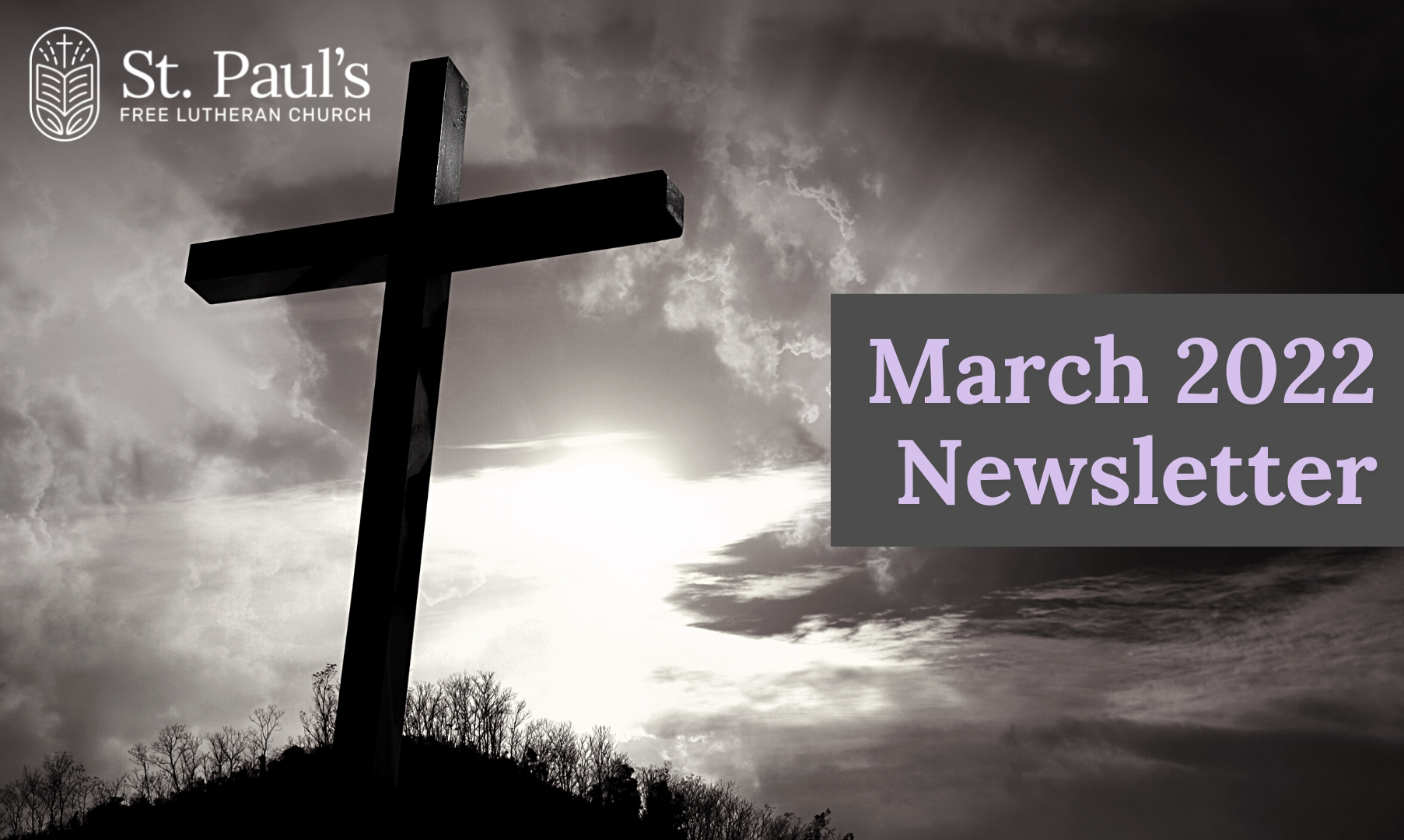Most people remember the popularity of the Chicken Soup for the Soul books that were published, beginning in 1993. These books were collections of inspirational, heart-warming, true stories meant to make the reader feel good. These stories were chicken soup; they were comforting and healthy, for your soul. I read recently that they’ve published over 250 “Chicken Soup” books, and they now have a pet food line and an entertainment wing of their business.
As fun as many of those stories were, Christians believe that Jesus and His Word are the true “food” for our soul (see John 6). And over and over again in Scripture, when the meal of God’s Word is delivered, it doesn’t fill us with “warm fuzzy feelings.” Rather, God’s Word drives us to humble repentance, and that was the plea from so many of the prophets and apostles throughout Scripture: “Repent!”
Here is the point. We are entering another Lenten season this month. I would argue that Lent is healthy for your soul. Your soul needs Lent. Certainly, themes found within the Lenten season are appropriate all year. But the primary theme of Lent is humble repentance, and it’s a healthy thing for us to focus on that over these next seven weeks.
This year, you’re going to get a heavy dose of that. Each Wednesday, you’ll hear a sermon on one of the penitential Psalms. These are Psalms that express deep sorrow for sin and they have been traditionally grouped together, as early as the 5th Century, for the purpose of highlighting the role of confession and repentance in the life of the Christian.
Sometimes people misunderstand the effect or goal of repentance. Some contend that repentance teaches us to live our lives always feeling sorry for ourselves; that a life of repentance means wallowing in our sins and failures. Not so! Biblical repentance teaches us to see the dire state of our soul outside of Christ, and to flee to Him for mercy. It teaches us to find our hope and confidence in Christ alone. And the hope and confidence we have in Him is sure and steadfast.
Consider Luke 18. In verses 9-14, Jesus tells a parable of a Pharisee and a tax collector. The Pharisee feels good about himself and relies on His good works for peace. On the other hand, the tax collector beats his chest in agony and cries, “God, be merciful to me, a sinner!” Jesus explains that it’s the tax collector who walks away justified. The one who humbles himself – who looks not to his own goodness, but to the goodness of Christ – that one is exalted.
Or follow the way Paul talks about himself as he ages. In First Corinthians 15, Paul calls himself “the least of the apostles.” Later, he writes to the Ephesians that he is “the very least of all the saints.” So now, not only is he the “least” of the apostles, he’s on the bottom rung of all Christians. And then finally in one of his last letters, First Timothy, Paul calls himself “the chief of all sinners.” He throws himself on the bottom of the pile of all humanity. This wasn’t so he could wallow in self-pity. Instead, it was the natural reaction to a lifetime of thinking less of Himself and more of Christ.
Come with us on a journey of confession and repentance this Lenten season. It’s a long and hard road. This life of wilderness wandering is difficult. It teaches us not to rely on ourselves, because we will never find satisfaction from within.
But there is hope. This road leads us to the cross, where we discover that our sins are washed away by the shed blood of the spotless Lamb. From there, the road leads us to the tomb, which shockingly, is empty! It is there that our souls are filled with joy, hope, and refreshment, not in our own goodness, but in the only One who truly satisfies our souls.
Journeying with you,
Pastor Micah
The full newsletter can be found here.





